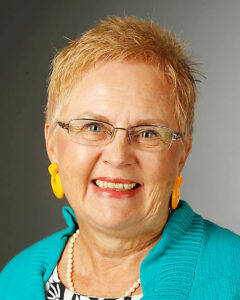The state of Texas’ Teachers Vacancy Task Force has issued a hopeful and ambitious report on how to save public education in this state. But neither the state nor the public should stop reading at the “state must pay teachers more” part of the headline. The real problem is deeper and much more complicated than addressing teacher pay. Quite frankly, if increasing pay were the answer to the problem we could shout “Hallelujah,” cough up the money and be done with it. Unfortunately, simple solutions only work for simple problems and simple minds. We have neither here.
There are other occupations (like law enforcement and nursing) that also need more money to attract and maintain the best people, but I know nothing about those professions. I know a boatload about teaching — I taught for 30 years. I was a principal and an adjunct college professor and won awards in every one of those fields. I also co-authored a science text for Glencoe/McGraw-Hill and wrote a book for parents, Beating the Bell Curve.
Part of the problem with education is a pervasive misunderstanding about what it takes to teach someone anything. Most people break a cold sweat just trying to teach their teenager to drive.
Learning takes place at the point of contact of three things: the child, the teacher and the curriculum. Of these, the teacher is the most important. First, the student is going to be there as a given. The teacher has almost no control over how that student is presented. The student is the function of the home, family and prevailing culture. A good curriculum is entirely at the teacher’s disposal, providing broad intellectual horizons, specific goals and limited restraints. But the teacher is the person responsible for taking both student and curriculum and bringing them together in a way that allows the student to internalize the information and shape it into something useful. What is more, the student must be both intellectually prepared and emotionally eager to internalize that information.
This is where teaching as an art becomes apparent. This is also where teacher education frequently fails us. Teaching, at its best, is both art and science. Unfortunately, teacher preparation programs, particularly at the elementary level, show little efficacy at either level. They are light on content. You can’t teach math if you are not schooled in math. You cannot teach science if you are light in science. You cannot teach reading or writing if you do not know phonics and decoding skills, grammar, syntax and literary style. Too often teacher education programs soft-peddle hard content and substitute serious learning theory for half-baked theoretical systems created by professors who couldn’t handle a third-grade class with a whip and a chair.
Teacher preparation programs shine when they teach brain development, learning theory and what hard science teaches us about how children and adults learn. Learning theory and strong content in the disciplines are what good schools of education (and there are many of them out there) give their teacher candidates. This is also what is missing from alternative certification programs. When we learn that 40% of first-year teachers in Texas have no certification or only alternative certification (which is the state’s “pothole patching” response to an alarming teacher shortage), it is easy to see why children aren’t learning, test scores aren’t rising and good teachers are throwing up their hands in despair and leaving the profession.
So where does the art of teaching come from? First, you can’t put in what God left out. If someone does not have the soul of a teacher they are going to struggle. Second, the mentoring of new hires in the form of a teacher residency is a spectacular way to show the new teacher how theory becomes practice. This concept is not new, by the way. In my teacher preparation program back in the mid-’60s, all theory classes incorporated weekly hours of work at the lab school that was on campus and provided education to the children of locals, students and faculty.
Now comes the vinegar. None of this is quick, easy or cheap. On the other hand, if you think education is expensive, try ignorance.
Ante up and keep the faith.
Louise Butler is a retired educator and published author who lives in Edinburg. She writes for our Board of Contributors.





